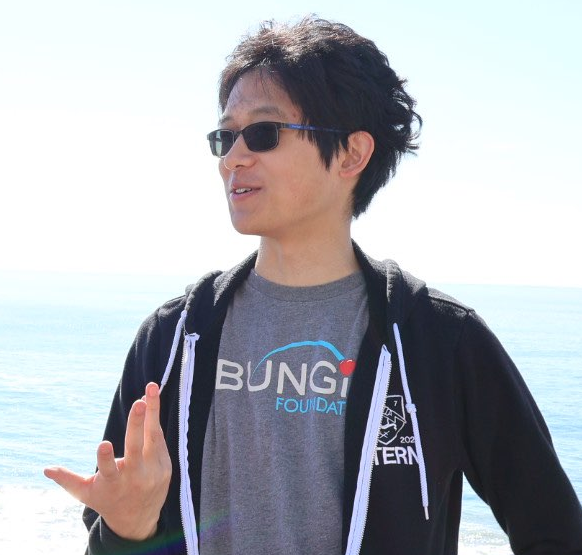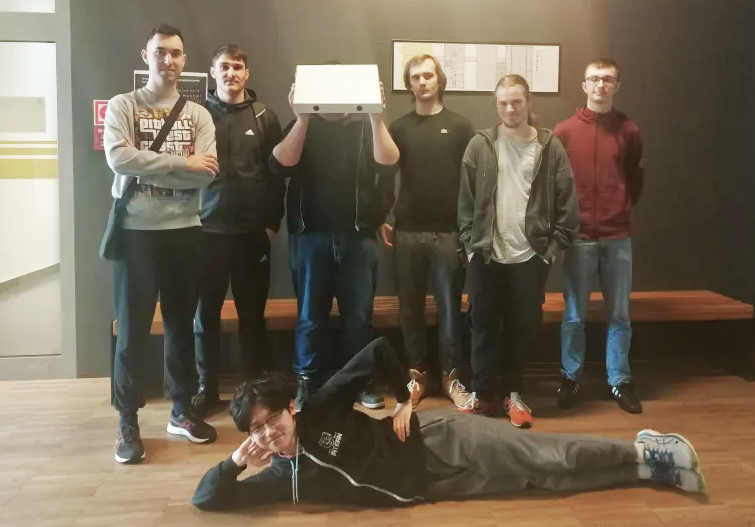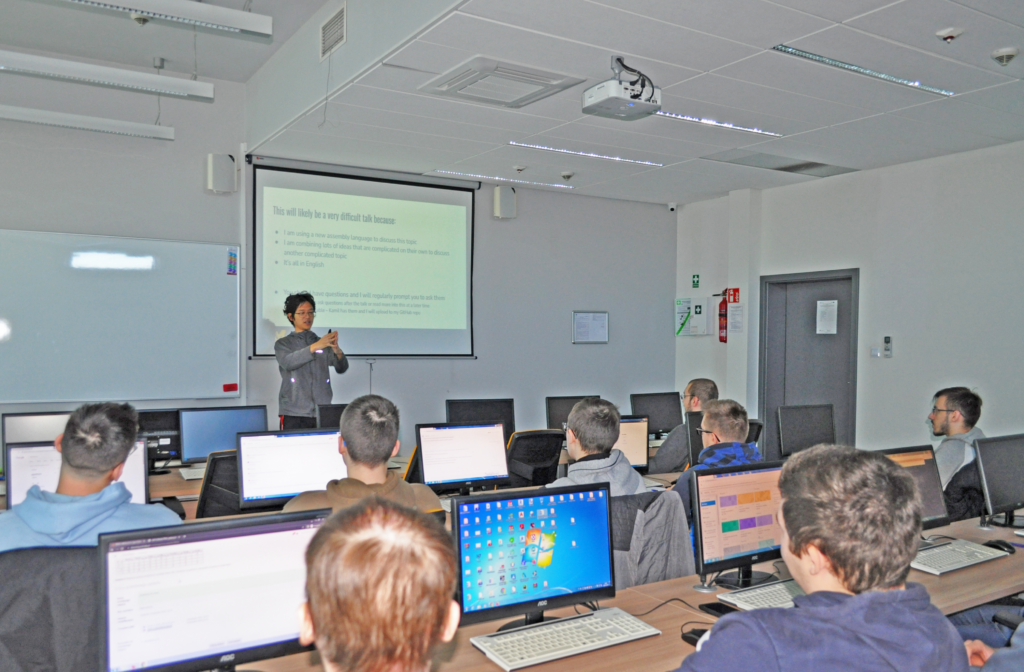Fulbright scholar and CSE alum Kevin Wang melds English and CS education in Poland
When he graduated from U-M, Kevin Wang (BSE CS 2021, MS CSE 2023) knew he didn’t want to follow a traditional career path. While many CS grads go straight from school into the tech industry, Wang wanted to keep learning and expanding his horizons.

“Rather than jumping right into a tech job, I knew I wanted to do some sort of service for a year,” said Wang. “I didn’t want to just sit in front of a computer all day. I decided to take some time to figure out exactly what to do with my skills while also contributing to a cause I value.”
This vision took him all the way to rural Poland, where he is currently teaching English and computer science as a Fulbright scholar at the University of Łomża. A graduate student instructor (GSI) during his final year at U-M, teaching was a fruitful and inspiring experience for Wang, one he hoped to replicate during his time in Poland.
“Teaching as a GSI was my favorite part of being at U-M,” he said. “This Fulbright scholarship is giving me the chance to continue that journey and help others in their learning.”
One of just 27 U-M students selected to receive a 2023-24 Fulbright scholarship, Wang is combining his technical skills and the teaching experience he gained at U-M to help Polish students develop proficiency in both practical English and computing, an atypical combination for the Fulbright English Teaching Assistant program.
“My arrangement is a little bit unusual because English Teaching Assistants typically only teach courses for English as a foreign language (usually abbreviated as TEFL),” said Wang. “It just so happens that the university was also interested in my computer science background and asked me to teach some information technology courses too.”
With the help of Wang’s technical background, the University of Łomża is trialing new computer science courses in English for the first time, giving students an opportunity to learn computing while also practicing their language skills.
According to Wang, these experimental courses have not been without challenges, but overall they have provided students with valuable experience.
“Students are learning an already difficult topic from scratch in a foreign language,” said Wang. “This increases the difficulty, but it also increases the potential gains. They are able to practice their English, and they also get additional practical experience, which students have found interesting and helpful. I’m working with the faculty now on reaching the right balance.”
Wang has also provided students with opportunities to hone their skills outside of the classroom. He founded a coding club at the University of Łomża, where participants are able to work on practical programming projects and practice teamwork in English.

Wang has also experimented with new teaching strategies that incorporate conversational AI in the foreign language classroom.
“I’ve been working on integrating large language models into my practical English lessons,” said Wang “Typically, there are two primary actors in a classroom – the teacher and the student. Having this third agent that is distinct from the teacher and students opens up new possibilities for different types of interactions and ways to keep students engaged.
“I believe there is a unique opportunity for LLMs to serve as assistive tools for TEFL exercises,” said Wang. “In other subjects, LLMs are not accurate enough to reliably supplement classroom activities at the university level. However, they can produce high-quality samples of English text given a wide array of prompts, which opens up a lot of exciting possibilities in the TEFL classroom.”
“This may not extend as well to foreign language teaching generally,” he added. “LLMs have much better performance in the English language compared to non-English languages.”
One successful example of an LLM-based initiative that Wang implemented this past semester was what he called AI Santa. For this activity, Wang had students work together to compile Christmas wishlists and present them to ChatGPT.
“Another student would then act as Santa and read out the generated responses from ChatGPT, and we would add to the prompts to keep the activity fresh and entertaining,” Wang described. “It was effective at keeping students engaged and helping them practice vocabulary they otherwise might not use.”

Wang hopes to continue fine-tuning his use of AI in the classroom. Next semester, he is hoping to use a series of open-source models to build an end-to-end chatbot that can hear students’ speech and give back spoken responses.
“Ideally, students will be able to talk to a model that transcribes their speech on the fly, and that transcription will be sent to another model that generates a response based on that input, which is then sent to a final text-to-speech model that produces the spoken reply,” Wang described. “Having an end-to-end conversational tool like this would open the door to more conversational, interactive speaking practice. There are paid solutions out there for this kind of problem, but I see a lot of potential value for teachers in creating an open-source alternative.”
In addition to teaching, Wang has enjoyed exploring and learning about Poland outside the classroom. Traveling around the country and interviewing locals about their perspectives and experiences has given him new insight into the region and its unique history, as well as informing his own self-understanding.
“I am of Chinese heritage, and I believe you can draw a number of parallels between Polish and Chinese history, especially from the 20th century,” he said. “Immersing myself in Polish culture and learning about the history has helped provide additional perspective on my own family story and cultural heritage.”

Wang’s curiosity about different cultures was inspired in part by his time at U-M and the diversity of people and backgrounds he encountered there.
“I met a lot of different people at Michigan,” said Wang. “Many of my friends are in computer science, but I also have friends in psychology, music, aerospace engineering, and other fields. I think meeting and befriending people with a wide variety of backgrounds, life goals, and personalities contributed to me pursuing a Fulbright and exploring this opportunity rather than going immediately into the software industry.”
Going forward, Wang hopes to bring this emphasis on people and diversity to bear in his future work.
“Being at Michigan and my Fulbright experience have helped me realize that stories are deeply important to me,” he said. “I would like to use my software skills to help tell stories, particularly in the realm of video games.”
Whether in the video game industry, the entertainment industry at large, or in software as a whole, Wang envisions leveraging his technical skills alongside his appreciation for storytelling to craft and share compelling narratives that bridge cultures and connect people across the world.
Wang’s Fulbright journey underscores the value of interdisciplinary education as he blends technology and language teaching to enrich the learning experiences of his students. His innovative approach and commitment to service exemplify the spirit of the Fulbright program, as well as showcasing the wide-reaching potential of a Michigan education.
 MENU
MENU 
